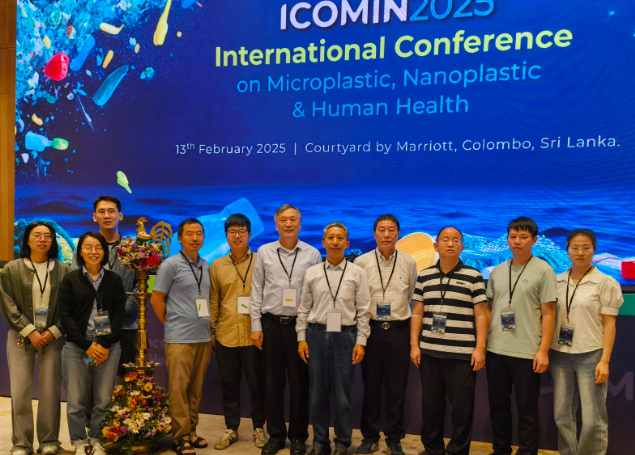New Advances in Agricultural Microplastics Research, Good News from Colombo!
From February 13 to 16, an academic exchange conference focusing on the Sino-UK agricultural microplastics project was held enthusiastically in Colombo, the capital of Sri Lanka. This meeting injected strong momentum into the deep advancement of the project.
The project is led by Academician Zhang Fusuo and Professor Liu Xuejun from the College of Resources and Environmental Sciences, in collaboration with Professor Davey Jones and Professor Dave Chadwick from Bangor University, UK, and has received strong support from the Global Challenges Research Fund (GCRF). The project team conducted a comprehensive and in-depth research discussion around the widespread use of agricultural plastics in developing countries globally and the major issues of green and sustainable development in agriculture.

Scholars and experts from China, the UK, Egypt, Sri Lanka, and other countries gathered together, including Professor Liu Xuejun and Associate Professor Wang Kai from the College of Resources and Environmental Sciences, Researcher Yan Changrong from the Institute of Environment and Sustainable Development in Agriculture, Chinese Academy of Agricultural Sciences, as well as renowned scholars and related team members from Bangor University, University of Bristol, Mansoura University in Egypt, and University of Peradeniya in Sri Lanka. They all participated in this project exchange conference and attended the International Conference on Micro/Nanoplastics and Human Health held concurrently.
During the meeting, Researcher Mojith Ariyaratne from the University of Peradeniya, Sri Lanka, warmly welcomed the arrival of the experts, faculty, and students. Professors Davey Jones and Dave Chadwick gave a comprehensive introduction to the project and chaired discussions on the project's summary work and future cooperation directions. Professor Liu Xuejun and other experts also engaged in in-depth project discussions.
Among them, Associate Professor Wang Kai detailed the overall progress of the Chinese side of the project. Dr. Qu Kaijing, a doctoral student from the College of Resources and Environmental Sciences, explained the necessity and challenges of atmospheric microplastic research and shared the latest findings of atmospheric microplastic studies in the North China Plain. Researcher Yan Changrong demonstrated an application of a mulch film selector, which can recommend more suitable mulch film products based on the environmental conditions of the crop growing area. Meanwhile, Bai Runhao, a doctoral student from the Institute of Environment and Sustainable Development in Agriculture, Chinese Academy of Agricultural Sciences, discussed the temporal evolution differences in abundance, size, and other characteristics of biodegradable and polyethylene mulch film microplastics entering the soil, as well as the feasibility of using neural networks to characterize the degradation stages of microplastics.
In addition, representatives from the UK, Sri Lanka, and Egypt also shared their respective work progress and achievements. Experts from various units also put forward targeted policy recommendations on the impact of the project, the current status of global and Chinese agricultural film usage, and the issues of macro/micro plastic pollution, and conducted friendly exchanges of opinions.
After the meeting, the participants visited experimental fields, atmospheric sampler devices, and biochar preparation facilities at the University of Peradeniya, Sri Lanka, further deepening their understanding and knowledge of the related research of the project.
【Copyright and Disclaimer】The above information is collected and organized by PlastMatch. The copyright belongs to the original author. This article is reprinted for the purpose of providing more information, and it does not imply that PlastMatch endorses the views expressed in the article or guarantees its accuracy. If there are any errors in the source attribution or if your legitimate rights have been infringed, please contact us, and we will promptly correct or remove the content. If other media, websites, or individuals use the aforementioned content, they must clearly indicate the original source and origin of the work and assume legal responsibility on their own.
Most Popular
-

Key Players: The 10 Most Critical Publicly Listed Companies in Solid-State Battery Raw Materials
-

Vioneo Abandons €1.5 Billion Antwerp Project, First Commercial Green Polyolefin Plant Relocates to China
-

EU Changes ELV Regulation Again: Recycled Plastic Content Dispute and Exclusion of Bio-Based Plastics
-

Clariant's CATOFIN™ Catalyst and CLARITY™ Platform Drive Dual-Engine Performance
-

List Released! Mexico Announces 50% Tariff On 1,371 China Product Categories






